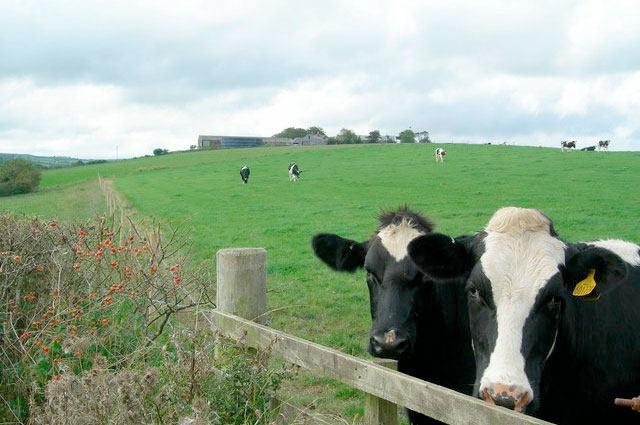
Farm gate price for milk must reflect the wider market for milk and dairy products and the performance of milk processors, according to the NFU.
It follows in the wake of a round of milk price cuts this summer – some of which the Union feels were unjustified.
If processors want longer-term farmer commitment, then the Union believes paying a price that reflects company performance will pay dividends rather than employing a policy of knee-jerk price changes in response to what others in the marketplace have done.
The Union is keen to hear from producers who are unclear about how their own specific price is being set and how the decisions on price changes are arrived at, to help it assess current understanding and what further steps it can take to improve the situation.
NFU Scotland’s Milk Policy Manager George Jamieson said: “The price that a milk processor can pay a farmer for his milk will vary depending on its ability to maximise market potential through its business plan and plant efficiency.
“Crucially for farmer suppliers, the price paid should be as much as the business can pay and not merely as much as they have to. Can we remind all processors that if they want long term commitment from farmer suppliers then they should set a price based on performance and not use competitors’ adjustments as an easy excuse to drop?
“This demands a transparent and open pricing structure which farmers can trust and understand. This must be a two way process with farmers and their representatives being fully aware of the wider markets, the performance of the processors they supply and how the farm gate milk price is arrived at.
“We are keen to hear from producers who are unclear about how their own specific price is set and how the decisions on price changes are arrived at, to help us assess current understanding and what further steps we can take with processors to improve this.”
Commenting specifically on the announcement that Arla amba has reduced its ‘on account’ price to UK members by 0.94p per litre, Gary Mitchell, chairman of NFU Scotland’s Milk Committee said that this was disappointing, but a reflection of the down turn in global markets.
Mr Mitchell said: “NFUS has met several times with Arla senior management and elected farmer members to help us understand the governance, democracy and pricing policy. That included the company sitting down in private with our milk committee.
“More recently, Arla and NFUS have agreed that a more intensive ‘work shop’ type meeting will help us fully understand exactly how its system works.
“It is vitally important for all players in the dairy supply chain to understand how prices are set and how each individual farm business price is derived. Farmers must be able to trust the price and be able to react to any changes in pricing policy, and that requires a full and open understanding of the process.
“The voluntary Code of practice on milk contracts has helped responsible processors and proactive farmers’ groups, PLCs and co-ops to improve dialogue and representation, but there is still much to do if we are to be a genuinely collaborative and competitive supply chain.
“Arla invested a significant amount of time and effort to engage with potential new members from Arla Foods Milk Partnership - and before that Milk Link - to explain how the Arla co-op system works and, with the move towards more alignment on pricing, there is a need to consolidate this work.
“Our work with Arla is a good example of recognising that farmers must fully understand pricing policy and detail if we are to develop more trusting and effective engagement between farmers and processor.
“Farmers must themselves be more active either via their elected farmer representatives, or get involved in either the co-op democratic structure or a PLC Producer Group. If they don’t have a producer group then they should ask why not? There are several excellent examples of effective, independent producer groups who are much more than simple price negotiators.”
